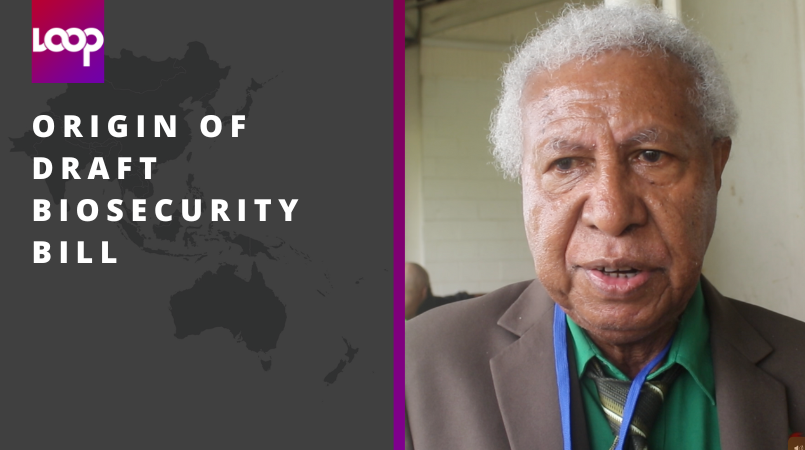
The notion of establishing a biosecurity bill came about in 2002 during a Pacific Ministers Forum, where leaders noted an impediment to trade within the regions.
The policy and planning manager of the National Agriculture Quarantine and Inspection Authority, Hunter Moi, outlined that the Pacific leaders noted that some of the island nations’ laws were not in line with international trade obligations and standards.
PNG is a member of the World Trade Organization and thus, is subject to obligations under the Agreement on the Application of Sanitary and Phytosanitary Measures and the Trade Facilitation Agreement.
“So they tried to get all the countries in the region to harmonise their laws towards it,” said Moi.
“We started around 2003.
“One thing that we didn’t do well – one of the delays – was that we had the draft bill done then we took it up for it to go through the process of being enacted. We hit a brick wall and that was, we didn’t have a policy.
“So we came back to the drawing board, with assistance from friends from the Australian government – through the International Finance Corporation – assisted us and we developed the policy.
“In 2022, we got the policy done. That policy sets the foundation for the bill.
“That policy was approved by the National Executive Council in May 2022 and after that, we started working on the bill.”
The final stakeholder consultation workshop on the ‘Draft Biosecurity Bill 2023’ started in Lae on Tuesday, July 11th, and will end on Thursday, July 13th.
The draft Biosecurity Bill conforms to requirements of international trade, set by the World Trade Organization.
NAQIA hopes the Minister for Agriculture, Aiye Tambua, can get the Bill passed in Parliament this year.
